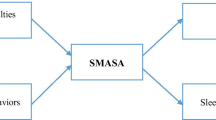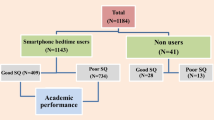Abstract
The development of college students’ and adolescents’ mental and physical health is of prime importance and has a crucial role in China’s progression. Different types of teachings and methods are envisioned and implemented to achieve this milestone. These methods include therapy and counseling, stress management, mediation, physical activities and creative activities. Music teaching is one of the methods that is used to improve the quality of human mental health. Initially, this research study defines the music teachings and the methods utilized for imparting music teachings. It elaborates on the importance of mental health, issues due to mental health, and their causes in college students. Second, it studies the relationship between music teachings and human physiology. It presents theories of human physiology and algorithms for measuring the quality of human mental health. Third, this study evaluates the impact of music teachings on the mental growth of adolescents and performs statistical analysis using big data in a three-tier fashion. It consists of the Assessment Session Check-In mental health test model, mental health analysis theory, and theory of favorable environment. The study also incorporates the 90-category symptom self-assessment analysis (SCL-90) and the self-measurement health rating analysis calculation method and uses SQL Server for statistical implementation. Finally, an evaluation study compares adolescents with and without music teachings using three parameters, i.e., physical health, mental health, and physiology. The statistical results are compared with results obtained from the existing statistical methods, which reveal that mental health gains are visible, with music study students outperforming ordinary students by 20% on the SCL-90 and having 14% higher mental health index scores. The comprehensive mental health score shows a significant 18% improvement over time. After two years of music instruction, the number of psychologically unwell pupils dropped by 28%, and extreme psychological issues has substantially decreased by 50% or more. This study can significantly improve students’ understanding and approach to mental health, particularly in music education. It provides compelling evidence of the positive impact of music study on mental well-being, potentially influencing educational practices and policies.














Similar content being viewed by others
Data availability
Inquiries about data availability should be addressed to the authors.
References
Ali M, Yin B, Kumar A, Sheikh AM et al (2020) Reduction of multiplications in convolutional neural networks. In: 2020 39th Chinese control conference (CCC). IEEE, pp 7406–7411. https://doi.org/10.23919/CCC50068.2020.9188843
Aslam XD, Jun H, Qianmu L, Rizwan U, Zhen N, Yaozong L (2020) Reliable control design for composite-driven scheme based on delay networked T-S fuzzy system. Int J Robust Nonlinear Control 30(4):1622–1642
Bhavani V, Sirivarshitha AK, Sravani K, Priya KS (2023) Music classification and mental health analysis using exploratory data analysis. In: 2023 International conference on innovative data communication technologies and application (ICIDCA). IEEE, pp 555–561
Carter TE, Panisch LS (2021) A systematic review of music therapy for psychosocial outcomes of substance use clients. Int J Ment Heal Addict 19:1551–1568
Che W, Li J, Geng R (2021) Influencing factors affecting work performance and personal career development—taking college music teachers as an example. Aggress Violent Behav. https://doi.org/10.1016/j.avb.2021.101714
Chen Z (2019) Observer-based dissipative output feedback control for network T-S fuzzy systems under time delays with mismatch premise. Nonlinear Dyn 95:2923–2941
Chen G, Chen P, Huang W, Zhai J (2022) Continuance intention mechanism of middle school student users on online learning platform based on qualitative comparative analysis method. Math Probl Eng 2022:3215337. https://doi.org/10.1155/2022/3215337
Dong X, Kang X, Ding X (2022) Influence and analysis of music teaching environment monitoring on students’ mental health using data mining technology. J Environ Public Health. https://doi.org/10.1155/2022/1120156
Fachner J, Maidhof C, Murtagh D, De Silva D, Pasqualitto F, Fernie P, Panin F, Michell A, Muller-Rodriguez L, Odell-Miller H (2023) Music therapy, neural processing, and craving reduction: an RCT protocol for a mixed methods feasibility study in a community substance misuse treatment service. Addict Sci Clin Pract 18(1):36
Hazrat B, Yin B, Kumar A, Ali M, Zhang J, Yao J (2023) Jerk-bounded trajectory planning for rotary flexible joint manipulator: an experimental approach. Soft Comput 27(7):4029–4039. https://doi.org/10.1007/s00500-023-07923-5
Khudaykulov A, Changjun Z, Obrenovic B, Godinic D, Alsharif HZH, Jakhongirov I (2022) The fear of COVID-19 and job insecurity impact on depression and anxiety: an empirical study in China in the COVID-19 pandemic aftermath. Curr Psychol. https://doi.org/10.1007/s12144-022-02883-9
Kumar A, Shaikh AM, Li Y et al (2021) Pruning filters with L1-norm and capped L1-norm for CNN compression. Appl Intell 51:1152–1160. https://doi.org/10.1007/s10489-020-01894-y
Li Q, Miao Y, Zeng X, Tarimo CS, Wu C, Wu J (2020) Prevalence and factors for anxiety during the coronavirus disease 2019 (COVID-19) epidemic among the teachers in China. J Affect Disord 277:153–158. https://doi.org/10.1016/j.jad.2020.08.017
Li X, Zhang X, Jia T (2023a) Humanization of nature: testing the influences of urban park characteristics and psychological factors on collegers’ perceived restoration. Urban Forest Urban Green 79:127806. https://doi.org/10.1016/j.ufug.2022.127806
Li D, Ortegas KD, White M (2023b) Exploring the computational effects of advanced deep neural networks on logical and activity learning for enhanced thinking skills. Systems 11(7):319. https://doi.org/10.3390/systems11070319
Liu X, Shi T, Zhou G, Liu M, Yin Z, Yin L, Zheng W (2023) Emotion classification for short texts: an improved multi-label method. Humanit Soc Sci Commun 10(1):306. https://doi.org/10.1057/s41599-023-01816-6
Lu S, Liu M, Yin L, Yin Z, Liu X, Zheng W, Kong X (2023) The multi-modal fusion in visual question answering: a review of attention mechanisms. PeerJ Comput Sci 9:e1400. https://doi.org/10.7717/peerj-cs.1400
Melcher J, Lavoie J, Hays R, Dmello R, Rauseo-Ricupero N, Camacho E, Rodriguez-Villa E, Wisniewski H, Lagan S, Vaidyam A, Torous J (2021) Digital phenotyping of student mental health during COVID-19: an observational study of 100 college students. J Am Coll Health 71(3):736–748. https://doi.org/10.1080/07448481.2021.1905650
Muhammad IQ, Abdul M, Summera S (2023) Adaptive event-triggered robust H∞ control for Takagi-Sugeno fuzzy networked Markov jump systems with time-varying delay. Asian J Control 25(1):213–228
Nie W, Bao Y, Zhao Y, Liu A (2023) Long dialogue emotion detection based on commonsense knowledge graph guidance. IEEE Trans Multimed. https://doi.org/10.1109/TMM.2023.3267295
Ning H (2023) Analysis of the value of folk music intangible cultural heritage on the regulation of mental health. Front Psychiatry 14:1067753
Qian K, Schuller BW, Guan X, Hu B (2023) Intelligent music intervention for mental disorders: insights and perspectives. IEEE Trans Comput Soc Syst 10(1):2–9
Qin W, Lin Q (2022) Research on the fusion model of professional vocal music performance voice care and artificial intelligence technology in intelligent medical treatment. Wirel Commun Mob Comput 2022:1–7
Rosset M, Baumann E, Altenmüller E (2022) A longitudinal study of physical and mental health and health-related attitudes among music students: potentials and challenges for university health promotion programs. Front Psychol 13:885739. https://doi.org/10.3389/FPSYG.2022.885739/BIBTEX
Rucsanda MD, Belibou A, Cazan AM (2021) Students’ attitudes toward online music education during the COVID 19 lockdown. Front Psychol 12:753785
Schuller BW, Löchner J, Qian K, Hu B (2022) COVID-19’s impact on mental health—the hour of computational aid? IEEE Trans Comput Soc Syst 9(4):967–973
Shamrooz M, Li Q, Hou J (2021) Fault detection for asynchronous T-S fuzzy networked Markov jump systems with new event-triggered scheme. IET Control Theory Appl 15(11):1461–1473
Sun J (2022) Exploring the impact of music education on the psychological and academic outcomes of students: mediating role of self-efficacy and self-esteem. Front Psychol 13:128
Tan D, Levesque-Bristol C (2023) Understanding preservice teachers’ intentions to enact autonomy support: the combined perspectives from self-determination theory and mindset theory. Curr Psychol. https://doi.org/10.1007/S12144-023-04860-2/METRICS
Ullah R, Dai X, Sheng A (2020) Event-triggered scheme for fault detection and isolation of non-linear system with time-varying delay. IET Control Theory Appl 14(16):2429–2438
Wang L, Jiang N (2022) Managing students’ creativity in music education-the mediating role of frustration tolerance and moderating role of emotion regulation. Front Psychol 13:843531
Wang L, Zhai Q, Yin B et al (2019) Second-order convolutional network for crowd counting. In: Proceedings of SPIE 11198, Fourth International Workshop on Pattern Recognition, 111980T (31 July 2019). https://doi.org/10.1117/12.2540362
Wang F, Huang X, Zeb S, Liu D, Wang Y (2022) Impact of music education on mental health of higher education students: moderating role of emotional intelligence. Front Psychol 13:938090
Xiong Z, Liu Q, Huang X (2022a) The influence of digital educational games on preschool Children’s creative thinking. Comput Educ 189:104578. https://doi.org/10.1016/j.compedu.2022.104578
Xiong Z, Weng X, Wei Y (2022b) SandplayAR: evaluation of psychometric game for people with generalized anxiety disorder. Arts Psychother 80:101934. https://doi.org/10.1016/j.aip.2022.101934
Xu H, Sun Z, Cao Y et al (2023) A data-driven approach for intrusion and anomaly detection using automated machine learning for the Internet of Things. Soft Comput. https://doi.org/10.1007/s00500-023-09037-4
Yao W, Guo Y, Wu Y, Guo J (2017) Experimental validation of fuzzy PID control of flexible joint system in presence of uncertainties. In: 2017 36th Chinese control conference (CCC). IEEE, pp 4192–4197. https://doi.org/10.23919/ChiCC.2017.8028015
Yin B, Khan J, Wang L, Zhang J, Kumar A (2019) Real-time lane detection and tracking for advanced driver assistance systems. In: 2019 Chinese Control Conference (CCC). IEEE, pp 6772–6777. https://doi.org/10.23919/ChiCC.2019.8866334
Yin B, Aslam MS et al (2023) A practical study of active disturbance rejection control for rotary flexible joint robot manipulator. Soft Comput 27:4987–5001. https://doi.org/10.1007/s00500-023-08026-x
Zhuo M (2021) Music education online system with cloud computing. In: Application of big data, blockchain, and internet of things for education informatization: first EAI international conference, BigIoT-EDU 2021, virtual event, August 1–3, 2021, proceedings, Part I 1. Springer International Publishing, pp 485–493
Funding
This study was funded by 2022’s Guangxi Higher Education Undergraduate Teaching Reform Project “Integrated Design and Practice of Ideological and Political Education in Programming Courses under the Background of New Engineering” (2022JGA406); 2021’s Guangxi Higher Education Undergraduate Teaching Reform Project Research on the construction and practice of data literacy curriculum system under the background of "Four New" construction. Guangxi higher education undergraduate teaching reform project research result (2021JGB449).
Author information
Authors and Affiliations
Corresponding author
Ethics declarations
Conflict of interest
The authors have no relevant financial or non-financial interests to disclose. The authors declare that they have no conflict of interest.
Ethical approval
This article does not contain any study with human participants or animals performed by the authors.
Additional information
Publisher's Note
Springer Nature remains neutral with regard to jurisdictional claims in published maps and institutional affiliations.
Rights and permissions
Springer Nature or its licensor (e.g. a society or other partner) holds exclusive rights to this article under a publishing agreement with the author(s) or other rightsholder(s); author self-archiving of the accepted manuscript version of this article is solely governed by the terms of such publishing agreement and applicable law.
About this article
Cite this article
Wang, L. Exploring the influence of music education on the development of college mental health based on big data. Soft Comput 27, 17213–17229 (2023). https://doi.org/10.1007/s00500-023-09209-2
Accepted:
Published:
Issue Date:
DOI: https://doi.org/10.1007/s00500-023-09209-2




